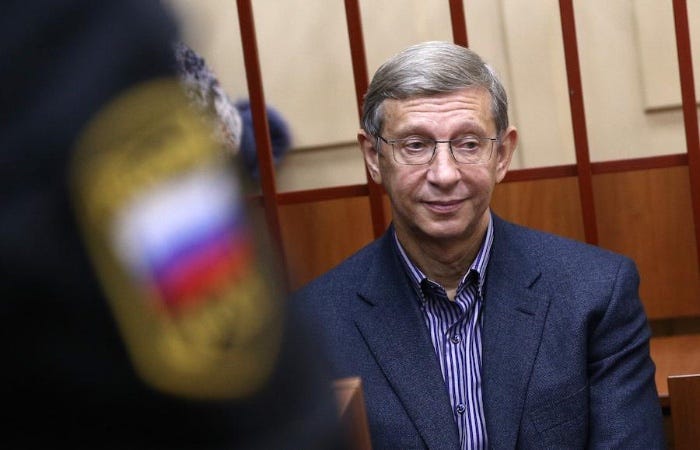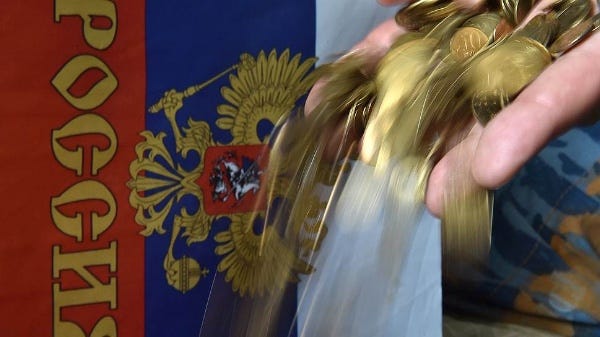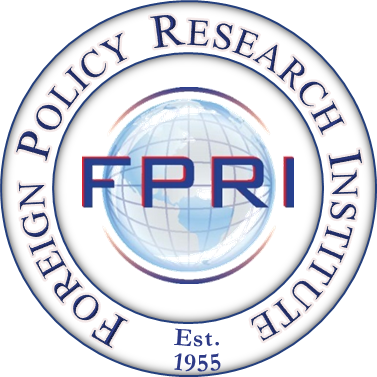Protect ya REC

Markets
USD to RUB: 62.8337 (.24%)
BRENT CRUDE: 74.27 (1.69%)
IMOEX: 2242.49 (.32%)
RTS: 1126.35 (.08%)
Top Story
Audit Chamber scrutinizes Russia's exports
NEWS: The Audit Chamber undertook a review of the Russian Export Center (REC), an organ tasked with supporting exporters. Small and medium-sized businesses (SME) receive little support from the REC and, as expected, higher technologies in industrial spheres received most support.
TAKEAWAY: The Audit Chamber's review of the REC isn't really about exports. It's a chance for Alexei Kudrin to push for economic liberalization by highlighting the inefficient use of budget funds for targets set in Putin's May decrees this year, including that SMEs account for a 10% share of Russia's as yet undefined "non-primary exports." Kudrin is piggybacking on Putin's official wish list for his new term to expand his powers every chance he gets.
CONTEXT: Per review of REC led by Irina Tretyakova, $1.4 billion of budget funds were spent in support of 45 organizations exporting goods. Firms like RM Rail, KamAZ, Rostelmash, and aircraft manufacturer Sukhoi led the way. On the whole, Russia's export trade was worth $357.1 billion, a 4% increase since 2015. But the structure of exports should be watched closely. Energy exports -- namely oil, gas, and coal -- dominate Russia's export earnings and oil prices were lower in 2015 on average than they were in 2017.
Though the REC measured growth of non-resource exports -- they accounted for 13.6% of the value of Russian exports last year -- it's dominated by large firms carrying out orders frequently linked to political interests. Tretyakova noted that many SMEs aren't aware of opportunities for export support schema via the REC. Per results from a business poll conducted by Opor Rossii, only 6% of SMEs actually export goods. The problem is compounded by the fact that no one understands what exactly the categories for exports such as primary vs. non-primary announced by Putin in May actually mean for businesses and those tasked with implementing policy.
Alexander Chepurenko of the Moscow Higher School of Economics notes that all of the $1.4 billion ought to go to SMEs that need to develop new competencies, not to large firms well-suited for export markets. He also noted the value of developing further state services to help SMEs export.
Chart: Pension reform hurting public confidence in Putin [ENG]


Snapshot: Yevtushenkov gets congressional attention [ENG]
US House members Ileana Ros-Lehtinen and Mark Walker who've written a letter to Treasury Sec. Steve Mnuchin and Sec. of State Mike Pompeo asking Yevtushenkov be investigated in relation to determine if he meets sanctions criteria. Yevtushenkov owns the Sistema investment group, a permanent object of Rosneft CEO Igor Sechin's ire. (Photo: Artyom Korotayev / TASS)
Around the Sectors with Alex Nice (@AlexNicest)
The giant energy and mining holding EN+, which was sanctioned by the US Treasury in April, may re-register from Jersey to Russia according to Vedomosti sources, which could also involve delisting from the London Stock Exchange. To offset the inevitably higher administrative and tax burden on the company, the company may base itself in one of the “internal offshore” zones set to be start operating from January 2019 on October island in Kaliningrad and Russia island in the Far East. Re-registering in Russia may be one of the conditions for receiving state aid. However, the company may still be hoping it can distance itself sufficiently from Deripaska for the US Treasury to lift its sanctions.
Sanctions are now such a dominant concern in cross-border trade that it is easy to assume Russia’s membership of the WTO is now an irrelevance. Despite its more interventionist industrial policy, Russia is continuing to at least formally comply with WTO rulings. Last week Russia lifted antidumping duties on Italian and German LCVs after the WTO dispute settlement body ruled against it.
Russia’s willingness to continue to work constructively within the WTO framework is also important for the other Eurasian Economic Union (EAEU) members, namely Armenia, Belarus and Kazakhstan, since external tariffs are meant to be coordinated at an EAEU level. WTO membership has not stopped Russia devising a range of non-tariff barriers and subsidies for key industries, particularly the automotive sector (the Ministry of Industry announced new measures just last week). But playing fast and loose with rules on state support is the rule rather than the exception for many WTO members.
Finally, the latest figures for the United Aviation Corporation (UAC) indicate it is struggling to make a success of its expansion into civil aviation. Profits are largely being driven by sales of military aircraft. Production off the MS-21 and SSJ 100 are behind schedule and international sanctions are pushing UAC to rely more heavily on state defence orders.
Chart: Central Bank keeps key rate, tightens guidance [ENG]

Business
Alrosa approves new dividend policy
NEWS: The world’s largest diamond producer will now make dividend payments based on its free cash flow (FCF), rather than net income. Dividends will amount to at least 50%, and potentially up to 100%, of the company’s FCF.
TAKEAWAY: The policy change reflects the company’s lack of large investment projects in the coming years. As a more transparent and less volatile means of calculating dividends, the new policy will help attract investors. It also provides insurance if capital costs for the restoration of the Mir mine in Yakutia, a key asset, run higher than expected.
DETAILS: According to AKRA analyst Maxim Khudalov, calculating dividends from FCF is the most honest way to pay dividends. While net income may be manipulated by ‘paper items’ that don’t actually affect revenues, free cash flow is a real, not calculated, indicator of company performance.
FCF also takes into account capital expenditures. After the tragic flooding of the Mir mine, Alrosa will have to invest heavily in restoration, modernizing production, and improving safety measures. So far, these projects are at the feasibility stage and have not yet received outside investment. By switching to FCF-calculated dividends, Alrosa protects against the possibility that costs run high. If so, dividend payments will decrease accordingly. Yet experts believe that large upfront investment will attract investors in the long run: by prioritizing development, the company will help ensure the long-term value of its securities.
The new policy seems popular with investors: Alrosa’s market capitalization increased 9.8% last week to 725.2 billion rubles ($11.6 billion).
CHARTS: Alrosa market capitalization [RUS]; Net income, dividend payments, and free cash flow 2014-17 [RUS]; and Ownership structure [RUS]

Snapshot: Crowdfunding on the rise in Russia [RUS]
The crowdfunding market doubled in size in 2017, reaching 11.2 billion rubles ($178.4 million). B2B lending is also on the rise. Totals remain low, but the trend is worth watching given the role of credit schemes within Russia's informal economy. (Photo: Anatoly Zhdanov / Kommersant)
What They're Saying
"We invited Russia to join as an observer. We believe Russia is considering the proposal . . . I can assure you that all members of OPEC welcome Russia."
- Saudi energy minister Khalid al-Falikh, on Russia in OPEC
Infrastructure
FAS proposes bill on port deregulation
NEWS: The Federal Anti-Monopoly Service (FAS) is continuing to liberalize prices for port services while introducing investment fees for infrastructure investment to be collected from stevedores in return. The bill does not apply to ports that are associated with oil pipeline monopoly Transneft or to ports in the Far East.
TAKEAWAY: By creating investment fees, FAS hopes needed port infrastructure development will take place. But the move is functionally a subsidy for Transneft that could destroy its value by acquiring non-oil ports. Far East ports also require subsidization to maintain their competitiveness. It's a bandaid largely aimed at boosting revenues without much concern for effects on business.
CONTEXT: Regulation on prices for port services has been repeatedly loosened over the past several years. Most prices were liberalized after stevedores’ designation as a natural monopoly was revoked in 2013-2014. A study ordered in 2017 by former Deputy PM Arkady Dvorkovich found that market conditions are generally competitive except at ports that handle oil.
The new investment fee is intended to safeguard competitiveness; FAS will set the fee to “equalize competitive conditions between ports." At the same time, the FAS has been actively encouraging stevedores to invest in publicly-owned port infrastructure. At the moment, they direct only 1-2% of their revenue to infrastructure, and the FAS would like to encourage more private investment. Another possible motivation for the investment fee is to bring the cost of port calls to pre-2014 levels in real terms. Port calls are currently cheaper for foreign companies because of the ruble’s devaluation.
OPINION / ANALYSIS / ODDS AND ENDS
From WSJ: Mikhail Zadornov, Russia’s former finance minister now in charge of cleaning up the country’s banks, says the Kremlin needs to build relations with the outside world. If banks don’t regain access to foreign capital, his current strategy may fail. [ENG]
Some observers trace Putin's popularity among women to his ability to project masculinity. From The Telegraph, a video exploration of masculinity in Putin's Russia. [ENG]
Near St. Petersburg there is a marvel of Russian engineering: the "bridge of stupidity." The bridge has become a social media phenomenon because it was built so low that trucks routinely crash into it. [RUS]
The Presidential Council for Civil Society and Human Rights has condemned the cases against Jehovah's Witnesses in Russia. Not that it's likely to make a difference... [ENG]
MinFin is supporting the Russian wine industry by closing a tax loophole that allowed foreign producers to benefit from preferential tax rates. [RUS]
From RBK: Ivan Lyubimov of the Gaidar Institute argues that Russia suffers from a deficit of ideas, such that it consistently loses business competitiveness and isn't developing more complex sectors. [RUS]
Founded in 1955, the Foreign Policy Research Institute i

s dedicated to bringing the insights of scholarship to bear on the foreign policy and national security challenges facing the United States. It seeks to educate the public, teach teachers, train students, and offer ideas to advance U.S. national interests based on a nonpartisan, geopolitical perspective that illuminates contemporary international affairs through the lens of history, geography, and culture.
To keep up with FPRI daily, be sure to follow us on Twitter @FPRI and Like us on Facebook — joining our more than 250,000 fans worldwide!
For more information, contact Eli Gilman at 215-732-3774, ext. 103, email fpri@fpri.org, or visit us at www.fpri.org.




